- Home
- Destinations
- Mozambique
- Northern Mozambique
Overview
Ideal Destination For
- Beach
- Romance
- Special Interest
In order to give you a better experience, Ikewana uses cookies. If you continue browsing this website, we assume that you consent to receive tracking and third-party cookies. Click here for more information
Kindly complete the form and your personal concierge will be in touch as soon as possible.
Nkwichi, which means “the sand that squeaks”, is a lost hideaway on the pristine Mozambican shores of Lago Niassa (Lake Malawi). Its 5 large spacious chalets were hand-built using local materials, which mingle with the miombo woodland that stretches from the vast Manda Wilderness Conservation Area all the way down to white sand, washed by crystal-clear water. The Chalets house enormous beds with gleaming tree-trunk mosquito-net posts, living areas and private toilets. The outdoor bathrooms are surrounded by tangled greenery from where you can laze back in a huge bubble bath sculpted into primordial rock.
Nkwichi also offers a private house called Mokolo House that is best-suited for groups or families. It sleeps 2 adults and 2 to 3 children, or 4 adults – in 2 bedrooms. The house comes with a private chef and a guest services team, as well as a private beach. Dinners can be enjoyed wherever takes your fancy that day – on the beach, on your veranda or on a deck overlooking the lake under giant trees. The beach bar is where everybody gathers for sundowners around the bonfire. Here you can pick up snorkelling gear and a kayak to explore the waters of the lake, which is filled with millions of colourful fish. Alternatively, set off back through the forest to look for pangolins and zebras. More than a lodge, Nkwichi is a complete experience offering a unique taste of Africa with exquisite lakeside scenery and unparalleled tranquillity.
The ultimate way to savour Lake Malawi is from the vantage point of a Star Bed, which is set on a deserted, virgin beach surrounded by breath-taking baobabs. Alternatively choose the star bed on a private rock island close to the shore under the African night sky.
Nkwichi is wonderfully isolated – you can only get there by boat.
Enjoy fresh fish from the lake and fresh food from the farm.
This eco-lodge supports many projects in the area.
All chalets have either a beach or a lake view.
Isolation means access is slightly laborious; i.e. either a charter flight followed by a boat trip or a long car journey followed by a boat trip.
The lodge is somewhat off the grid – with no charging points in the rooms, only lights.
Nkwichi is part of Mozambique. There is an immigration point an hour’s boat ride away for guests coming in via Malawi. Arriving at Likoma Island (Malawi) by ferry or by plane, guests will be stamped out of Malawi by Likoma officials, hop on a boat across to Cobue, stamp into Mozambique (and get a visa on arrival if they wish) and then carry on to Nkwichi.
Set sail in a traditional Mozambican Dhow sailboat – a time-honoured tradition in East African waters and one of the oldest and most traditional ways of getting around.
A dhow is a traditional Arabian boat which includes lateen sails and stitched construction, with hull boards that are sewn together with fibres, thongs or cords. Enjoy a daytime excursion exploring the coastline, stopping for beach picnics and possibly some snorkelling or scuba-diving along the way.
With a 2 500 km-long coastline and numerous islands, Mozambique is the ideal snorkelling destination. The ocean water is subject to the warm Agulhas current with temperatures seldom dropping below 25 degrees. Underwater, look out for a myriad of coloured sea stars, frogfish, cowfish, pufferfish, sweetlips, sea horses and peculiar looking sea cucumbers.
There are some well-known reefs, but plenty of relatively unknown spots waiting to be explored! Coral reefs and colourful fish can be found all along the coastline from Ponto do Ouro in the south to Pemba in the north. For something different, you may want to try a guided night snorkelling excursion with underwater torches for a completely different dimension.
Mozambique’s unexplored and unspoilt beaches provide the perfect environment for protected sea turtles to lay their eggs. Guests have the chance of witnessing nesting sites for Green, Hawksbill, Leatherback, Loggerhead and Olive Ridley Turtles from November to February each year.
When nesting, the female sea turtles emerge from the waves and crawl up the beach to dig holes, laying around 300 eggs each in an almost trancelike state. When the laying is finished, they cover the eggs with sand and make their way back to the sea. Between 55 – 65 days later, the hatchlings will cut their way out of the eggs and make their way to the sea. This usually takes place from January through until April. Sightings are most common at high tide, particularly at dawn or dusk, or during the night.
Please note that hatching may vary due to climate change and it is advised that you always enquire about the probability of seeing these creatures when booking your Mozambique holiday so that you don’t arrive out of season, or in a bad season.
Lose yourself for a few hours in this castaway style picnic on an uninhabited island paradise. Find yourself and a loved one in a remote and idyllic location, surrounded by bleach-white sand and the pristine waters of the Quirimbas Archipelago.
After a tantalising picnic lunch, relax and while away the hours wandering in and out of the sea, snorkelling, basking in the sun, lazing around on cushions and beanbags, and swimming in the cool, clear waters.
Mozambique’s unexplored and unspoilt beaches provide the perfect environment for protected sea turtles to lay their eggs. Guests have the chance of witnessing nesting sites for Green, Hawksbill, Leatherback, Loggerhead and Olive Ridley Turtles from November to February each year.
When nesting, the female sea turtles emerge from the waves and crawl up the beach to dig holes, laying around 300 eggs each in an almost trancelike state. When the laying is finished, they cover the eggs with sand and make their way back to the sea. Between 55 – 65 days later, the hatchlings will cut their way out of the eggs and make their way to the sea. This usually takes place from January through until April. Sightings are most common at high tide, particularly at dawn or dusk, or during the night.
Please note that hatching may vary due to climate change and it is advised that you always enquire about the probability of seeing these creatures when booking your Mozambique holiday so that you don’t arrive out of season, or in a bad season.
With a 2 500 km-long coastline and numerous islands, Mozambique is the ideal snorkelling destination. The ocean water is subject to the warm Agulhas current with temperatures seldom dropping below 25 degrees. Underwater, look out for a myriad of coloured sea stars, frogfish, cowfish, pufferfish, sweetlips, sea horses and peculiar looking sea cucumbers.
There are some well-known reefs, but plenty of relatively unknown spots waiting to be explored! Coral reefs and colourful fish can be found all along the coastline from Ponto do Ouro in the south to Pemba in the north. For something different, you may want to try a guided night snorkelling excursion with underwater torches for a completely different dimension.
Set sail in a traditional Mozambican Dhow sailboat – a time-honoured tradition in East African waters and one of the oldest and most traditional ways of getting around.
A dhow is a traditional Arabian boat which includes lateen sails and stitched construction, with hull boards that are sewn together with fibres, thongs or cords. Enjoy a daytime excursion exploring the coastline, stopping for beach picnics and possibly some snorkelling or scuba-diving along the way.
Lose yourself for a few hours in this castaway style picnic on an uninhabited island paradise. Find yourself and a loved one in a remote and idyllic location, surrounded by bleach-white sand and the pristine waters of the Quirimbas Archipelago.
After a tantalising picnic lunch, relax and while away the hours wandering in and out of the sea, snorkelling, basking in the sun, lazing around on cushions and beanbags, and swimming in the cool, clear waters.


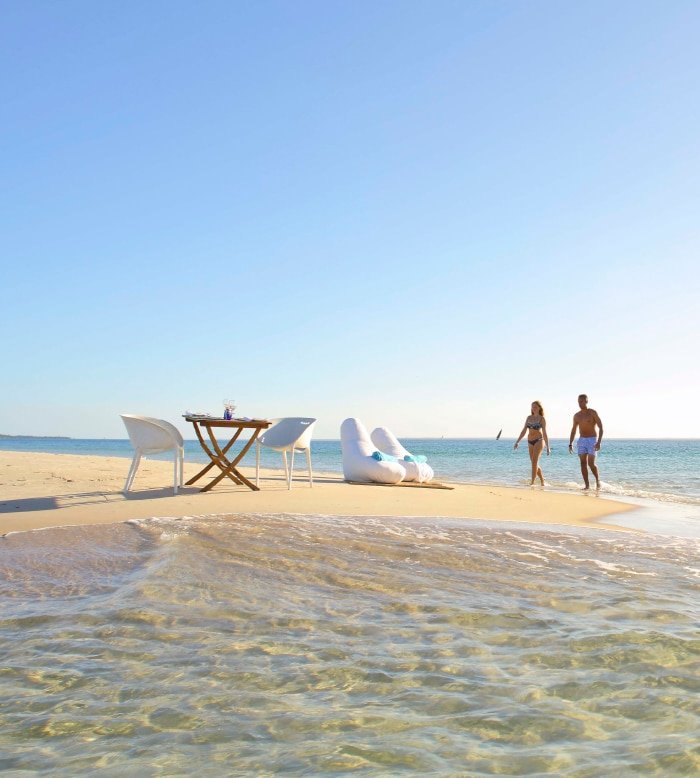
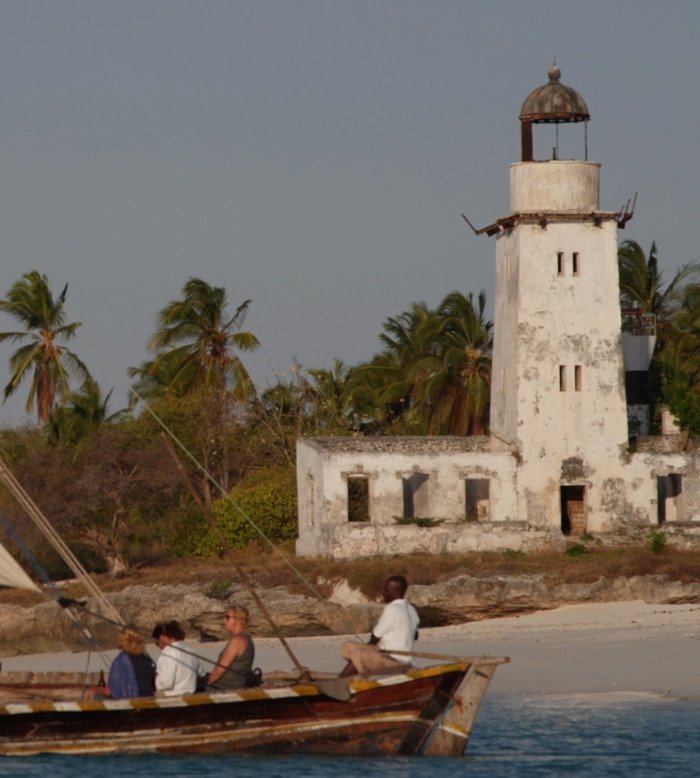
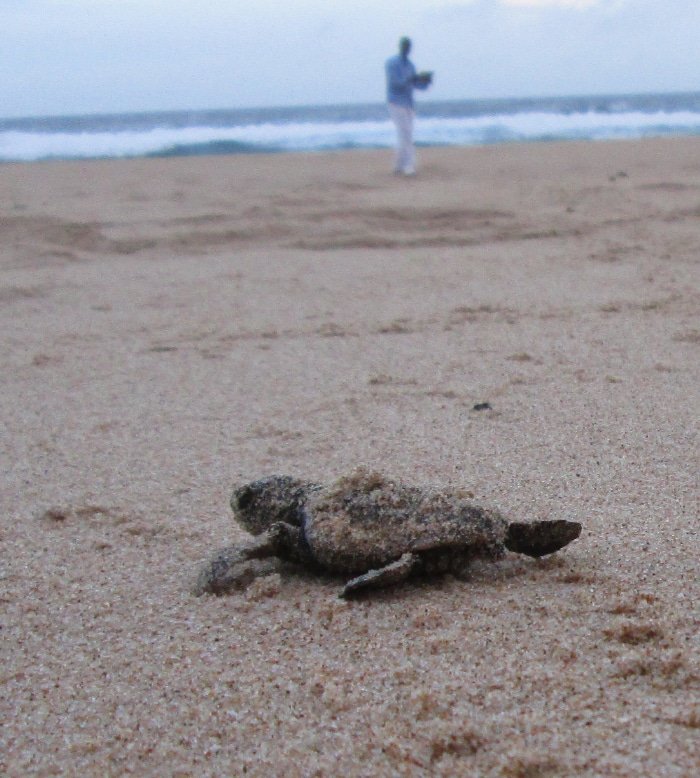
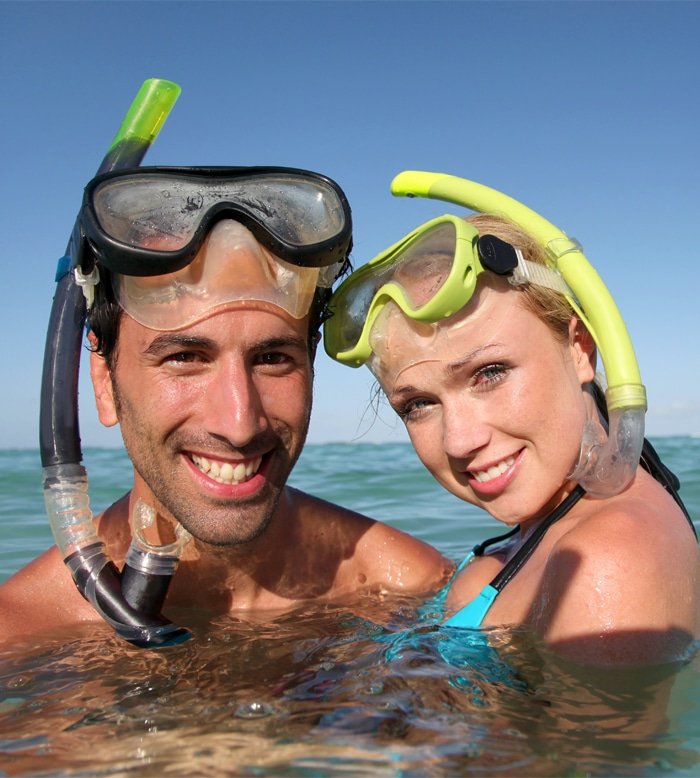
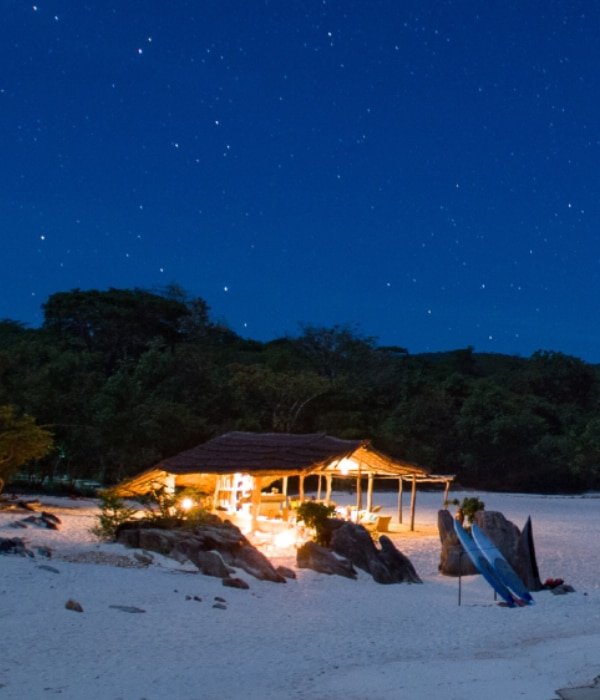
Mozambique becomes increasingly wilder and more beautiful the further north you travel, yet it still offers luxury and exclusivity for those who desire it. The city of Pemba offers exquisite sandy beaches where visitors can walk for miles without encountering another soul, while just a short boat trip off the mainland will take you to hundreds of small islands. Among the most captivating of these islands is the tiny “Mozambique Island”, a 500 metre wide by three kilometre long crescent-shaped islet, which is dotted with historic churches, chapels, palaces, forts and mosques; as well as the idyllic Quirimbas Archipelago featuring white-sand beaches lapped by turquoise waters, surrounded by coral reefs teeming with marine life.